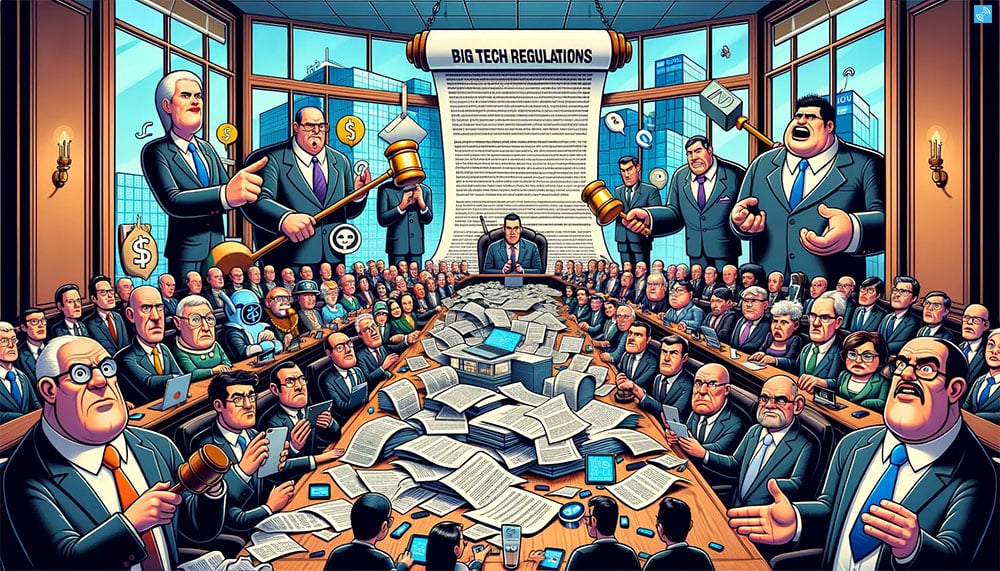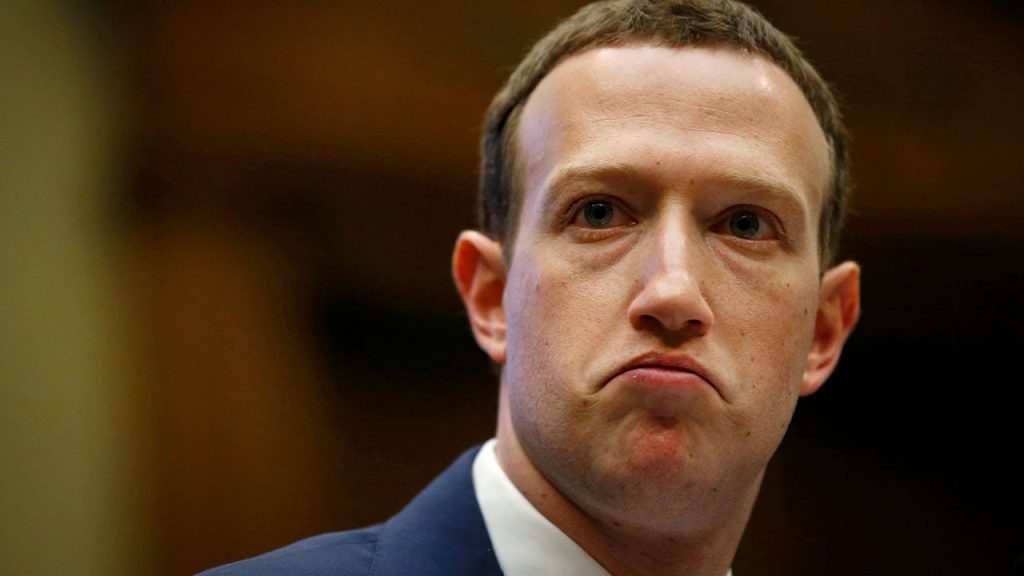In the world of technology, Apple‘s iconic logo stands as a symbol of innovation and consumer trust. However, in recent years, Apple, like other tech giants, has found itself entangled in a complex web of government oversight. The critical question is whether this regulatory web is impeding innovation or safeguarding public interests.

In the heart of Cupertino, California, Apple’s headquarters proudly stands, representing its remarkable journey from a humble garage startup to a global technology powerhouse. Nevertheless, the European Union (EU) casts a significant shadow over Apple’s operations. What was once a playground for innovators and disruptors has become a battleground, with the EU exerting considerable influence.
Let’s check out some of the most recent adjustments made by tech companies in response to legal mandates.
Apple Adopts USB-C
The adoption of USB-C in the iPhone 15 was Apple’s reluctant response to the EU’s call for a universal charging solution. While this move aimed to reduce electronic waste and enhance consumer convenience, it also underscores how regulatory interventions can compel even the most formidable tech giants to adapt.

This situation shows the impact of regulatory bodies on a company’s fundamental principles. Apple’s ecosystem, often referred to as its “walled garden,” represents not only a business model but also a commitment to quality, security, and user privacy. However, the EU’s push to dismantle this walled garden under the guise of protecting consumer rights poses a threat to Apple’s core values.
Foreign Apps in China now need Govt. Approval
Yet, the EU is not the only player in this regulatory landscape. China’s recent legislation poses a challenge to Apple’s App Store operations by requiring foreign apps to obtain government approval. This move could potentially lead to globally popular apps disappearing from Chinese iPhones, significantly affecting Apple’s revenue, given China’s importance in its market.
Not only this, but the EU is also considering replaceable batteries for modern smartphones. While the EU’s sustainability-driven effort to create smartphones with replaceable batteries seems commendable, its potential impact on global smartphone designs and production processes must be considered. While the goal is to reduce electronic waste, this mandate might inadvertently hinder innovative designs that prioritize sleekness and durability.
Huawei almost Vanishes after US Restrictions
The Huawei saga further highlights the complex relationship between technology and politics. The US’s restrictions on Huawei’s access to American tech and markets due to national security concerns have led Huawei to respond creatively by developing new chips without American technology. As governments grapple for tech dominance, companies are caught in the crossfire, often having to make strategic decisions that may not align with their innovative visions.
The Indian Scenario and Google’s Challenges
India has also shown its assertiveness by imposing a substantial fine on Google for alleged anti-competitive practices. While this move by the Indian antitrust body aims to ensure a level playing field, it could potentially impede the growth of Android, a significant contributor to India’s smartphone boom.

However, there are instances where government intervention becomes necessary. The infamous Cambridge Analytica scandal involving Facebook serves as a stark reminder of the importance of holding tech companies accountable for their practices and ethics. Such events provide regulatory bodies with a stronger mandate to impose regulations on tech giants.
Balancing Act: Regulation vs. Innovation
There is an undeniable need for regulatory bodies to ensure fairness, security, and consumer protection. However, striking a balance is crucial. History has shown that excessive regulation can stifle creativity, hindering progress and evolution. While governments aim to protect consumers and maintain security, their approach should not hamper the essence of technological advancement.
Tech giants are not just corporate entities; they are centers of innovation, research, and development.
However, with governments worldwide increasing their oversight, there is a risk of transforming these hubs of innovation into mere instruments of compliance. What is needed is a dialogue and a middle ground where tech companies can operate with freedom while ensuring user trust and security.
Conclusion
In an era marked by rapid technological progress, finding the right balance between oversight and innovation is more critical than ever. While governments must step in when there are cases of fraud, data breaches, or scandals, it is essential not to stifle the spirit of innovation. Tech companies have revolutionized our world, and it is in our collective interest to allow them to continue doing so. In this complicated dance between government regulation and innovation, let us hope that the rhythm favors progress and ingenuity.
If you’ve made it this far, I would highly recommend watching this video as well.
RELATED:
- Xiaomi 14 vs Google Pixel 8: Specs Comparison
- Best smart luggage of 2023: Modobag, Weego, Incase & More
- Best Smart Blinds of 2023: Yoolax, Ikea, Graywind & More
- Best Smart Scales of 2023: Fitbit, Garmin, Eufy & More







